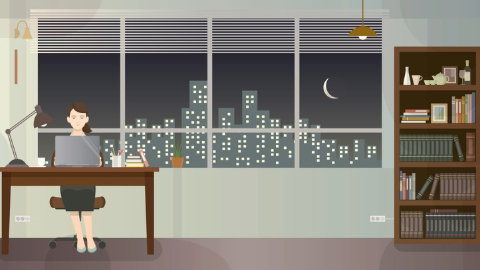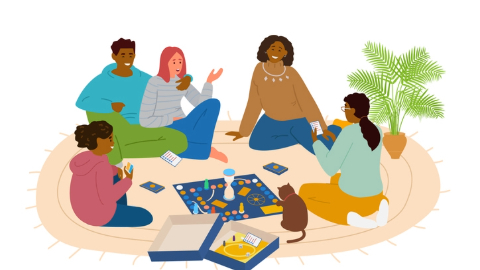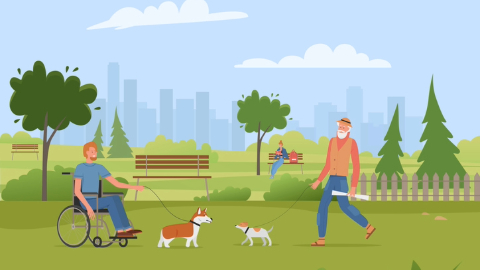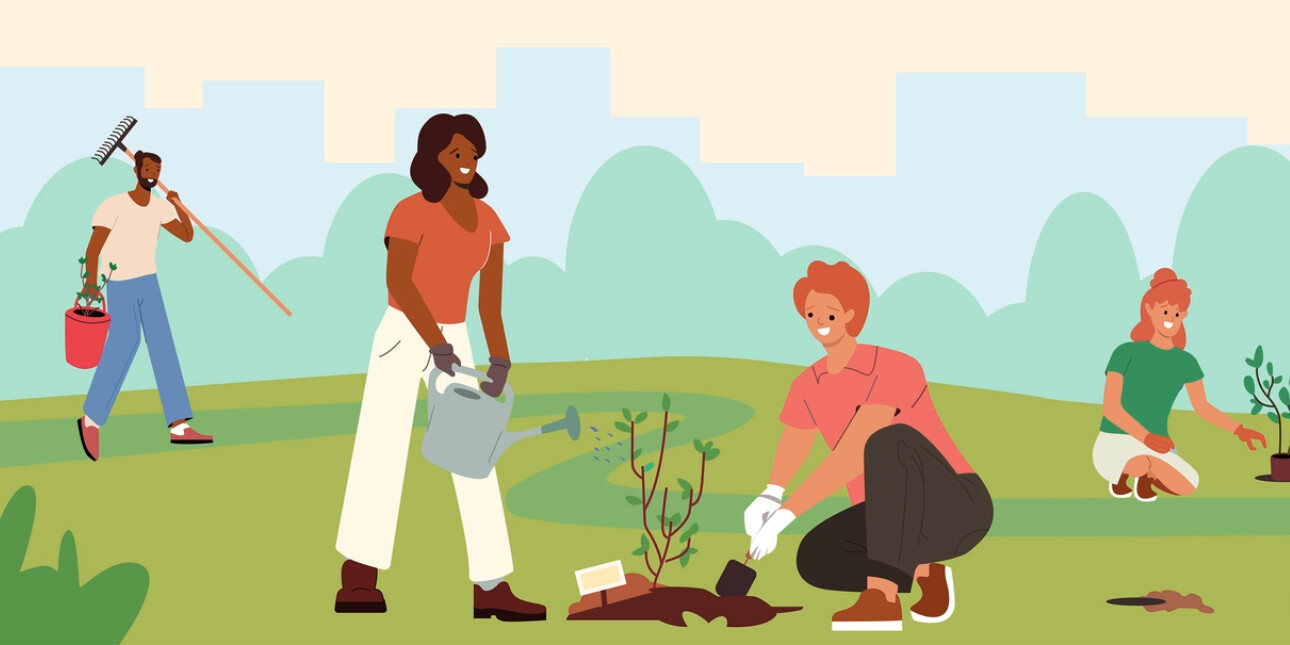How do PR professionals boost their mental health?
From pilates to painting, devices off and dog walking on, these PRs share their tips on how they keep mentally fit
Do we need to list the ways PR is a stressful occupation? There’s the 24/7 always-on culture that sees PRs rising at 6am to fix social posts, followed by a full-day’s work before spending the evening running an event that stretches into the small hours.
It’s a profession where agencies regularly see their pitches ghosted, where freelancers face job insecurity and where the redundancy grim reaper hovers his job-cutting scythe over the heads of many full-time employees (one in four UK PR firms made redundancies in 2024).
Add to that missed targets, demanding clients and the FOMO/what-the-hell-should-we-do-now discussions about AI, and it is little wonder working in PR can take a huge toll on mental health. In fact, one US survey ranked ‘PR executive’ as the sixth-most stressful occupation after military personnel, firefighters, airline pilots, police officers and event coordinators.

It's been a year since CIPR/PRCA’s Mental Health Wellbeing Audit found that the number of PR pros with a mental health condition is rising.
One-third of PRs said they struggle with a mental health condition, compared with just a quarter just a year before. A staggering 91 per cent of PRs had reported poor mental health in the previous 12 months. For the UK workforce as a whole, it was 63 per cent.
Many factors are contributing to PRs’ poor mental health. A primary bugbear appears to be the mountainous workload (which was cited as a big root-cause by 58 per cent of PR pros in the 2024 CIPR/PRCA research).
Working on pitches that may never see fruition, responding to an onslaught of enquiries with a deadline of yesterday or dealing with knock backs from journalists may be ‘all part of the job’ but it can still take a psychological toll.
On a brighter note, there are signs of progress. A generation of PRs are encouraging a culture of open communication around mental health, slowly eroding its taboo status in many agencies.

Illustration: Guzaliia Filimonova / iStock
Many agencies are introducing mental health initiatives, whether it’s Blurred funding talking therapies or Hope&Glory offering free subscription to meditation app Calm for everybody from the intern-upwards. Some PR teams now offer workplace counselling, wellness rooms and even ‘mental health days’ – driven in part by gen Z employees.
The advent of flexible working is also having a tangible impact on wellbeing (even if it conversely can leave some remote workers feeling more isolated): the CIPR/PRCA study found that 81 per cent of workers said they now have a better work-life balance, while 78 per cent said the absence of the commute has enhanced their mental health.
However, most of the time, the onus for improving our mental health comes down to ourselves. A few weeks ago, the CIPR put out a shout-out, asking PR professionals to share their advice on how they de-stress and cope with the pressures of the job.
What do your PR peers do?
With Mental Health Awareness Month taking place now in the United States and Mental Health Awareness Week starting shortly in the UK (12-18 May), here are their tips…
“Spending time with my 10-year-old daughter, Ava. Being silly, not taking things too seriously, and getting to relive the experiences I loved growing up - whether it’s going to concerts, taking art classes, or visiting new places together. Seeing the world through her eyes reminds me to stay curious, playful, and open to fresh perspectives.”
Nikki Brooks, change communication and employee engagement consultant, Nikki Brooks Consultancy
“I have a recurring meeting in my calendar that shows me out of office to make sure I have an hour each day to walk a lap around my village and have lunch. I know that if I spend the entire day in the house, it changes my mood.”
Dan Holden, communication consultant, All Things IC
“I'm a creative writer outside of my career (poetry mainly!) and keep an allotment, as growing things in nature is surely the last act of rebellious hope against a world gone mad!
Louise Thompson, coach for communications professionals and a former director of communications, Louise Thompson Leadership Coaching

“A good mix of reading, walking the dog, trips to the theatre and time with friends, sometimes the best ideas come to you when you are at your most relaxed.”
Charlotte Dimond, director, Sidekick PR
“Puzzles, colouring in books and scribbling down children's stories (I'm a wannabe author). I also walk my dogs and spend time with my horses to get the fresh air and take a proper step away from my workspace.”
Francesca Carpanini, communications consultant, Carpanini Comms
“Walks in the Yorkshire countryside where I live are my mental health reboot. Staying mindful and surrounding myself with positive people keeps me happy and healthy.”
Jane Whitham, director, Altitude PR
“I have been open in discussing my own mental health challenges, as I think it's important that people hear it from their peers. I have reached out for professional support (receiving counselling) twice in the last 10 years. However superhuman we like to think we are, we all have our tipping point. Some people can find the counterbalance, others can't, or at least can't in that moment (which was me). There is no shame in saying that. I also find exercise - whether that's Park Runs, or walking the dog, or just getting out in fresh air - brings calm.”
Kevin Hegarty, communications business partner, Cadent
“When I’m stressed or overwhelmed, I let nature, and my sketchbook heal me. They are my best therapists. I head over to the beach for a swim and then paint the little boats and greenish blue waters and trees all around. It grounds me. About 10 years ago, I joined the ‘Urban Sketchers’ community and so sometimes if there is a chapter close by, I’ll meet other artists, and we’ll spend a morning sketching together.”
Seema Misra, assistant director communications, Atmosphere Core

“I try to keep moving, whether that’s a high impact class in the gym, a walk with the dog or a stagger around a 5k loop. Time to decompress is key!”
Emily Highmore-Talbot, director, HT Communications
"Working in comms can be challenging, and that's not just when dealing with a crisis – the day-to-day activities can take their toll too. For me, running is the key to staying positive and focused. I always run in the evening and am very fortunate to live surrounded by beautiful countryside and have my "running family" (with both physical and online members) to support me. Running gives me the perfect time to process the day, collect my thoughts, reflect on what may have happened, what may have gone wrong, but also time come up with the next idea!”
Nick Cullen, head of communications, PA Housing
“I have started reformer pilates which gets me out of my mind as I’m too busy focusing on movement and balance (basically not falling off!), it really helps me stay present.”
Natalie Neave, partner, Tin Man
“A daily walk and my weekly workout routine are non-negotiable for my wellbeing. Recently, I set a new rule of no screen time for the first hour of the day and instead I read a couple of chapters of a book over coffee. At the moment I'm reading Jen Sincero's You Are a Badass: How to Stop Doubting Your Greatness and Start Living an Awesome Life (which is great!) and I'm finding it a much healthier start to my day. I also do five minutes of breath work / mediation to ground me, and I set positive intentions before I officially get into work mode.”
Anna Ewer, independent PR consultant and former global head of consumer comms at Deliveroo

“Walking and talking — that’s my go-to. I have been working on emotionally heavy campaigns, like Donate4Dáithí, which centres around my son who’s been waiting for a heart transplant for nearly seven years. I also give my time to support other families going through similar experiences. It’s meaningful work, but it’s also intense.
“After a long day, the last thing I want to do is move. But after a couple of days without walking, I feel it in my head more than anywhere else. Getting outside, clearing the noise, talking things through with mates — it brings my focus and energy back.”
Mairtin Mac Gabhann, campaigner, Donate4Dáith
“I remember that it is important to look after myself and this includes time away from work: painting (pictures but sometimes walls!), gardening and swimming.”
Amanda Coleman, director, Amanda Coleman Communications
“My anxiety often blocks my creativity and what has transformed both is discovering my green fingers — tending to plants connects me to nature's rhythm, grounds my mind, and reopens my creative channels.”
James Sharp, specialist communications manager, NHS Mid and South Essex
“A morning workout is a non-negotiable for me now. I'm also actively focusing on my hobbies this year which means dusting off my novel manuscript, hitting a reading goal and learning how to punch needle.”
Jenny Kokolas, global communications manager, Walkers
“I love going for dog walks on the beach, so I do this as often as I can. I'm also an avid gym goer and go at least four times a week which really helps with my stress levels.”
Olivia Bence, head of digital PR, Bring Digital
“I walk, garden and sew.”
Susan Simmonds, communications consultant, Northdown Alexander
“Good sleep, healthy foods, the gym – and walking after the school drop off.”
Surinder Sian, external comms lead, Harbour Energy

“Boundaries. This is tied into being able to work flexibly. In the last few years I’ve prioritised carving out time for fitness and exercise. I love it as time for me, it gives me energy and makes me more productive.”
Angela Balakrishnan, exec director of comms and public affairs, Information Commissioner’s Office
“I prioritise structure and boundaries – switching off is as important as showing up. I carve out time for regular exercise and have two brilliant personal trainers who keep me accountable — it’s not just about fitness, but about creating space to reset mentally.
"I’m also a big advocate for open conversations around mental health. I’ve seen the power of psychological safety within teams — when people feel they can bring their whole selves to work, they’re more engaged and innovative. I try to model that by being honest about the challenges, championing mental health initiatives, and encouraging time for reflection, not just results.”
Scott Turzański, communications lead, Aspire Housing
“I do reformer pilates - it hurts but it helps! I have two dogs and walk them twice a day when I'm not at the office. I do everything to try and be in bed by 9.30pm because I wake up early and the best part of the day is between 5.30am and 7am when the house is asleep and the outside is waking up, that's my time.”
Rachel Gilley, CEO, Clarity Global
For anyone who needs help managing their mental health in or out of the workplace, charity Mind can offer information and resources.
Read more from this series
Advice I would pass onto PR professionals
PR professionals share career lessons learnt
Surviving and thriving as an over-50s PR
.jpg&w=728&h=90&maxW=&maxH=&zc=1)
